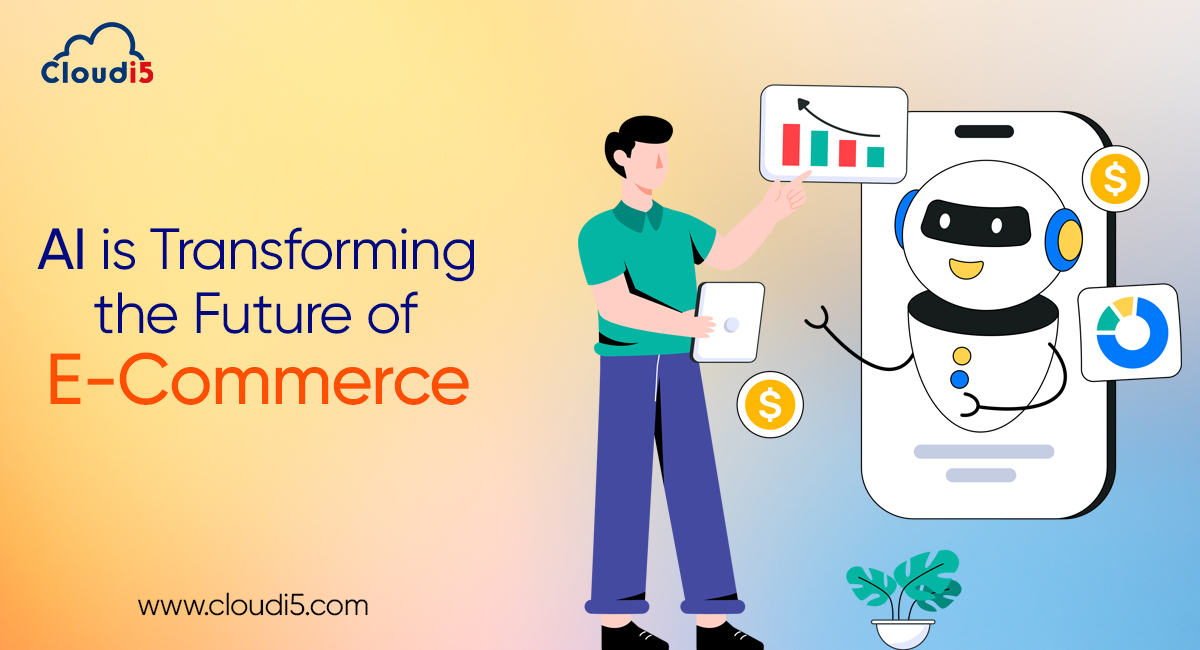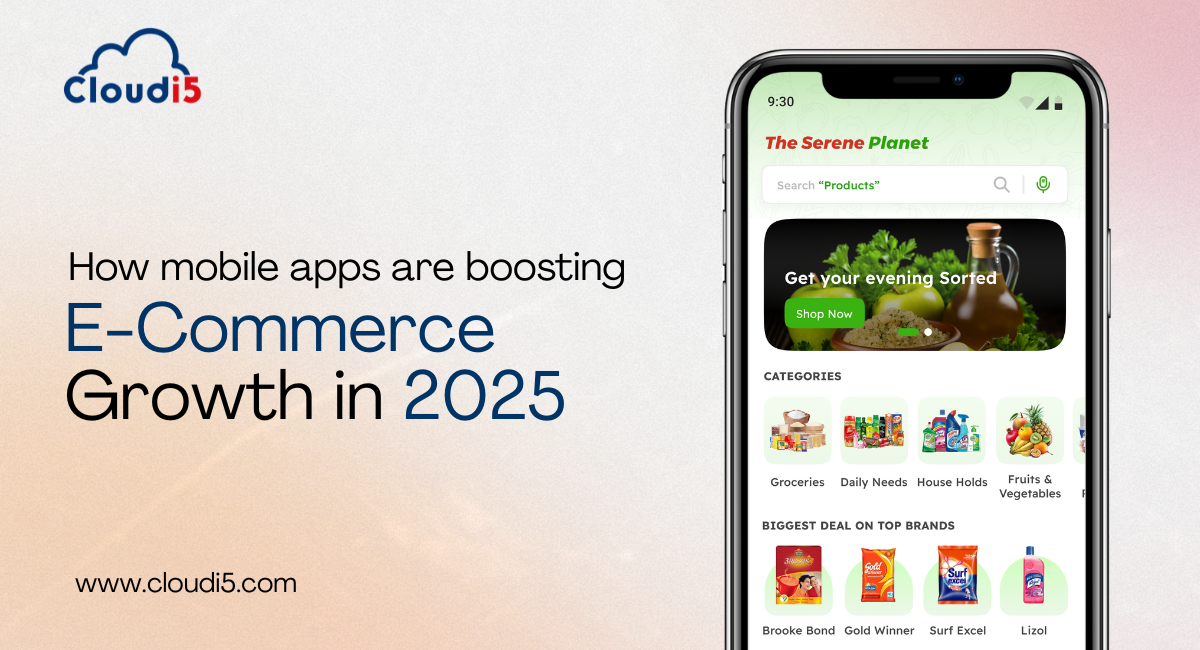
How AI Is Transforming The Future Of E-Commerce?
The future of e-commerce is so lit, it's gonna make your eyes bleed.
Just kidding. But seriously, the future of e-commerce is looking pretty bright.
Picture this: a world where shopping carts have a sense of humor, where drones double as delivery comedians, and where buying your favorite gadgets is as entertaining as binge-watching a sitcom. Yes, you heard it right – the future of e-commerce is about to get funny.
As we dive into the surreal landscape of online shopping's tomorrow, prepare to LOL (Laugh Out Loud) and ROFL (Roll On the Floor Laughing) as we explore the wacky and wonderful innovations that await.
So, strap in, secure your virtual seatbelt, and let's take a joyous ride through the aisle of hilarity and convenience that is the future of e-commerce!
But before we zoom into the future, let's get back to the basics. Now, I know you're no stranger to e-commerce, but let's refresh our memory, shall we?
So,
What is E-commerce?
E-commerce, or Electronic Commerce, is the buying and selling of goods or services online. It's the process of buying and selling products over the internet. E-commerce can be conducted between businesses (B2B), businesses and consumers (B2C), consumers and consumers (C2C), and consumers and businesses (C2B).
Now that we've refreshed our understanding of e-commerce, let's fasten our seatbelts and begin on this exciting journey into the future of online shopping. Get ready to discover how technology is shaping a shopping experience like never before.
The Future of E-Commerce
E-commerce is one of the fastest-growing industries in the world, and it is constantly evolving. New technologies and trends are emerging all the time, and businesses need to be able to adapt to these changes in order to stay competitive.
So, what does the future of e-commerce hold? Here are a few key trends that we can expect to see in the coming years:
- AI-Powered Shopping: AI has already left its mark on e-commerce by personalizing recommendations, refining search outcomes, and introducing virtual shopping assistants. In the future, we can anticipate a surge in AI-powered shopping experiences, including augmented reality (AR) and virtual reality (VR) shopping.
- Social Commerce: The convergence of social media and e-commerce, known as social commerce, is becoming increasingly prominent. It allows consumers to shop directly from social media platforms, such as Instagram and Facebook. The popularity of social commerce is on the rise, and it's expected to continue its expansion.
- Livestream Shopping: Originating from China, livestream shopping has started gaining traction globally. This form of social commerce involves businesses selling products through live video streams. Its popularity is expected to grow further in the future.
- Sustainable e-commerce: Consumers are becoming more aware of the environmental and social impact of their purchases. As a result, sustainable e-commerce is becoming increasingly important. Businesses that can offer sustainable products and e-commerce services will be well-positioned to succeed in the future.
- Voice shopping: Voice shopping is the use of voice assistants to shop online. Voice shopping is still in its early stages of development, but it is growing rapidly. We can expect to see voice shopping become more popular in the future, as voice assistants become more sophisticated and integrated with e-commerce platforms.
These are just a few of the key e-commerce trends that we can expect to see in the future of e-commerce. As technology continues to advance and consumer preferences evolve, we can expect to see even more innovative and transformative ways to shop online.
How AI is Transforming the Future of E-Commerce?
Artificial intelligence (AI) is a game-changer in the world of e-commerce, bringing about transformative changes across various facets of the industry. AI-driven solutions are revolutionizing the way businesses interact with customers, optimize operations, and make data-informed decisions. Here's a breakdown of how AI is reshaping the future of e-commerce:
1. Personalized recommendations
One of the most common ways AI is being used in e-commerce is to provide personalized recommendations to customers. AI can analyze a customer's past purchase history, browsing behavior, and other data points to identify patterns and predict what products they are most likely to be interested in. This information can then be used to provide more relevant product recommendations, which can lead to increased sales and customer satisfaction.
For example, Amazon uses AI to generate personalized product recommendations for its customers. Amazon's recommendation engine takes into account a variety of factors, including a customer's purchase history, browsing behavior, and ratings and reviews of other customers. This allows Amazon to recommend products that are likely to be of interest to each individual customer.
2. Improved search results
AI is helpful in improving the relevancy and accuracy of search results on e-commerce websites. AI can understand the natural language of search queries and identify the intent of the user. This information can then be used to provide more relevant search results, even for complex or ambiguous queries.
For example, Google uses AI to power its search engine. Google's AI algorithm is able to understand the meaning of search queries and return results that are relevant to the user's intent. This allows Google to provide more accurate and helpful search results to its users.
3. Virtual shopping assistants
AI-powered virtual shopping assistants are another way that AI is transforming the future of e-commerce. Virtual shopping assistants can help customers find products, answer questions, and complete purchases. They can also be used to provide personalized recommendations and customer support.
For example, Alibaba's virtual shopping assistant, AliMe, can help customers find products on Alibaba's website. AliMe can also answer questions about products, compare prices, and help customers complete purchases.
4. Operational Efficiency
AI contributes to streamlining e-commerce operations by automating tasks such as order processing, inventory management, and customer service. This automation frees up human employees to focus on strategic endeavors.
For example, Walmart uses AI to automate its order fulfillment process. Walmart's AI-powered system can pick, pack, and ship orders more efficiently than humans can. This has helped Walmart to reduce costs and improve its delivery times.
5. Informed Decision-Making
AI helps e-commerce companies to make well-informed decisions by analyzing massive volumes of data to find trends and patterns. This invaluable insight guides decisions related to product development, pricing strategies, and marketing campaigns.
For example, Netflix uses AI to analyze its customer data to identify trends and patterns. Netflix's AI algorithm is able to predict what movies and TV shows its customers are most likely to be interested in. This information is then used to develop new content and recommend content to customers.
How businesses can prepare for the Future of E-Commerce?
Here are some essential strategies to help your business thrive in the ever-changing landscape of e-commerce:
- Adopt Mobile Commerce: Ensure your website is mobile-responsive and offers a seamless shopping experience on all devices to cater to the growing number of mobile shoppers.
- Invest in AI and Personalization: Leverage artificial intelligence for personalized product recommendations and enhanced customer experiences, staying ahead in the competitive e-commerce market.
- Optimize for Voice Search: Adapt your SEO strategy to accommodate voice search, making it easier for potential customers to discover your products through voice-activated devices.
- Sustainability Matters: Embrace sustainability by using eco-friendly packaging, sourcing ethical products, and communicating your commitment to environmental responsibility, attracting eco-conscious consumers.
- Streamline Operations with Automation: Automate repetitive tasks in your e-commerce operations, such as order processing and inventory management, to improve efficiency and reduce costs, allowing you to focus on growth and innovation.
The future of e-commerce holds great promise for businesses willing to adapt and innovate. By proactively implementing these strategies, your business can position itself for success and thrive in the dynamic world of e-commerce.
How Cloudi5 Technology can help your E-commerce Business with the changing technology?
In the fast-changing world of online business, technology is your friend, not your foe. At Cloudi5 Technology, the e-commerce company, we're here to make sure your e-commerce store not only keeps up with technology but also thrives because of it.
- We create websites that work seamlessly on all devices, making it easy for your customers to shop and boosting your sales.
- We make sure your online store looks great and works well on mobile phones, where a lot of people shop these days.
- We use smart technology to suggest products to your customers, helping you sell more and making your customers happier.
- We take care of repetitive tasks in your online business so you can focus on growing your company.
- We help you make smart decisions using data, so you can sell the right products and market them effectively.
- We also provide expertise in integrating secure payment gateways, ensuring your customers have a smooth and secure checkout experience.
At Cloudi5 Technology, we're more than a partner; we're your driving force for success. Our extensive range of services is designed to propel you towards your business objectives and guide you through the ever-changing e-commerce landscape with confidence and innovation. Make the choice to go with Cloudi5 and begin a journey towards e-commerce excellence.
Conclusion
In the e-commerce universe, AI isn't just a tool; it's our North Star. From personalized recommendations to streamlined operations, it's reshaping how we shop and do business. As we embrace this revolution, one thing is clear: AI is propelling us into an unimaginable future where innovation knows no bounds, and e-commerce is limited only by our imagination.
"One day, AI will be so good at e-commerce, we'll be able to buy a product without even knowing what it is."
Trusted By












Leave Comments